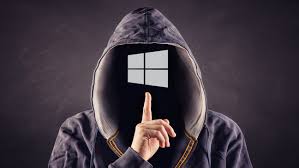By now most people have heard of social media monitoring in one form or another. Social media monitoring is something that companies do in order to maintain a good online presence and to monitor their online reputation. Restaurants, retail stores, doctors, lawyers and more are smart to hire a company to conduct this ongoing research on their behalf. It can reveal a lot about the company and its competitors.
In the investigation world, social media monitoring can take on an entirely new dimension. If you advertise that you conduct social media investigations, this added service could be a great new source of revenue for your company. A recent case study provides a good example of what we are talking about.
An investigator’s client (who is an attorney) was interested in locating an individual involved in a case she was working on. She wanted the individual’s social media watched for updates, as he was not able to be found using traditional surveillance methods. The investigator needed social media monitoring in order to watch for location clues in as close to real time as possible.
In the social media/ online world, things can change in a second. What is sometimes here today, will be gone tomorrow. That is where monitoring comes in. When an investigator uses social media monitoring, they are getting updates in real time. This type of online surveillance can be handy as it allows the investigator to get a clear picture and an update day to day on the whereabouts of his poi. This allows an investigator to act “in the moment” to better target resources to serve the person as needed, or to even find a missing person.
While conducting social media monitoring for this investigator we were able to locate the person. Within their instagram stories, we could see that he was on vacation and wanted to share his experiences. Looking at the background of an image can reveal a lot. We could see that he was visiting a very popular tourist destination. With this added information, it allowed the investigator to target more effectively. This may not be true in every case as some people don’t use social media at all. However, they are in the minority.
So next time you think about social media investigation ask yourself this question:
Would it be of value to my client to conduct social media monitoring for this case?
Some examples include:
- Jury monitoring before, during and after a high profile case
- Locating a missing person
- Threat monitoring
The bottom line to all of this is to begin with the purpose & be certain it is well justified and that you are monitoring open source data only. When needed, this is an additional step in your investigation that may save time and money in the long run. People love to share their experiences online and this will never change. Learn ways to use it to your advantage.
